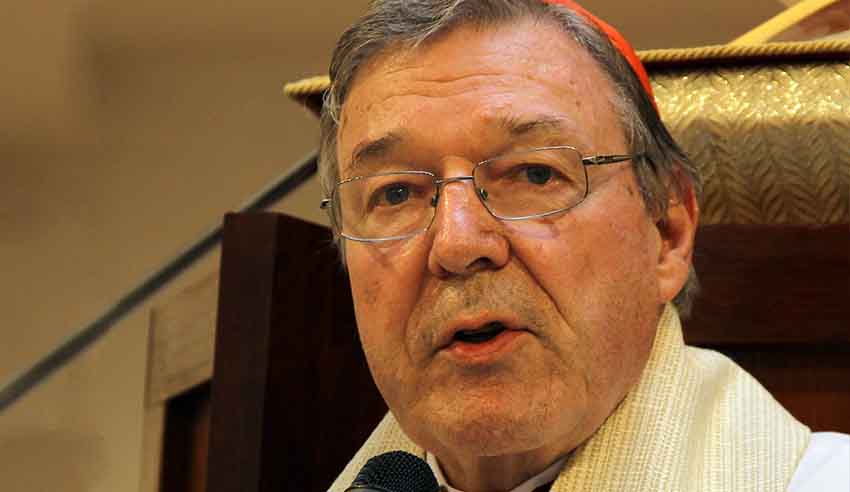George Pell to try for final bid of appeal
Predicted to be the most watched hearing in Australian history, the high-profile George Pell final bid for appeal will begin today. Here’s what to expect.

Over 11 and 12 March, the High Court of Australia will determine before a full bench — whether it is five or seven judges is yet to be disclosed — if it will grant Cardinal Pell with special leave to appeal his historic sexual abuse charges.
To continue reading the rest of this article, please log in.
Create free account to get unlimited news articles and more!
The full bench will hear the arguments on the appeal itself before the ruling and about 100 pages of trial transcripts selected by each of the parties. Cardinal Pell’s legal team and the Director of Public Prosecutions, Kerri Judd, will have four hours to make their case.
Although the court could provide a result after this bid, it could also potentially be held back a few months to write the judgment. Once it does, it can go several ways: refuse special leave, grant special leave and dismiss the appeal, grant special leave to allow the appeal, or grant special leave and send the case back to Victoria’s Court of Appeal.
There is a mixed response to this final bid for appeal. Sydney Law School professors Andrew Dyer and David Hammer said the claims the majority from Victoria’s Court of Appeal reversed the onus of proof is “dubious” but added the case was open to him.
“The evidence that [Cardinal] Pell had no opportunity to offend was strong, and it does seem open to HCA plausibly to insist Cardinal Pell’s convictions were unreasonable — against that are the considerations of judicial constraint,” the professors said.
Slater and Gordon principal lawyer Nick Hart said there will be “great concern” over its handling of the case and what it will mean for abuse survivors.
“If Cardinal Pell is found not guilty and it’s a successful appeal, abuse survivors could take it the wrong way and there is great concern that an outcome could deter people who have experienced abuse from seeking help or reporting abuse,” Mr Hart said.
The case for George Pell
Cardinal Pell’s legal team, consisting of barristers Bret Walker SC and Ruth Shann — Robert Richter QC, who was his main barrister at his trials, is no longer on the case — has set out their case in a 21-page written submission. They are arguing that Victoria’s Court of Appeal should have ruled the guilty verdict by the jury was unsafe.
In addition to the argument that there was no opportunity for offending, his lawyers will argue that no matter how favourable a view was taken of the victims, “it was not open to the jury” to conclude prosecution had eliminated reasonable doubt.
In the court documents, it’s also alleged the prosecution took a “passive approach” by not challenging witnesses further. They argue that by not doing so, there is an absence of any rational arguments available that explained “how the whole of the evidence was consistent with proof of guilty beyond reasonable doubt”.
Mr Walker and Ms Shann also argued necessity of three most senior Court of Appeal judges watching recorded evidence of 12 witnesses, including the complainant, rather than simply reading the transcripts and relying on other material.
They argued: “The court did not identify a reason why it was necessary for them to go beyond the written transcripts in order to determine the appeal.”
The case against George Pell
Ms Judd, along with Mark Gibson QC, fired back at Cardinal Pell’s appeal and said it “glosses over evidence supportive of the account of the complainant”.
“[Pell’s legal team] disregards an important aspect of the majority’s assessment of [the victim’s] credibility and reliability: that undisputed facts regarding the applicant’s use of the priests’ scarcity [at St Patrick’s Cathedral] and the layout of the priests’ scarcity provided independent support for [the victim’s] account,” Ms Judd wrote.
She outlined that the majority “reviewed the whole of the evidence” along with having assessed the victim’s credibility and reliability in several contexts.
On the judges watching recorded evidence, Ms Judd said there were no errors. They noted the “majority’s viewing of non-written evidence did not affect [the] submission of the M test in any manner relevant to the issues in this application”.
Lawyers Weekly will be hosting a podcast examining George Pell’s trial. If you’re interested in giving your view, and if you’re a practising lawyer or legal professional with expertise in this space, get in touch with me at






